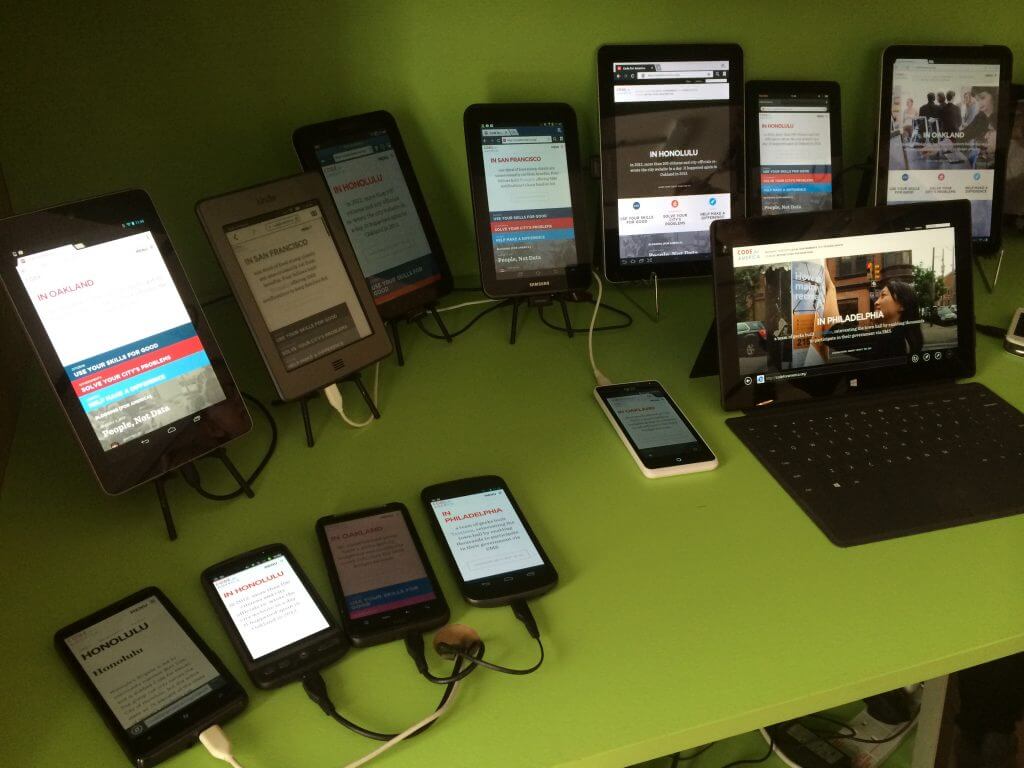
In today’s fast-paced world, staying up-to-date with the latest real device testing trends is essential to providing high-quality software to customers or audiences. As we move into 2023, certain trends from 2021, such as automation, will continue to gain momentum. Automation tools such as Appium, Espresso, and XCUITest have become increasingly popular and are likely to be used more widely in the future.
Other trends that are likely to gain popularity in mobile testing in 2023 include the use of artificial intelligence (AI) and machine learning (ML) to improve testing efficiency and accuracy. These technologies can help identify patterns and anomalies in large data sets, enabling faster and more effective testing.
To ensure that mobile software runs smoothly when releases are pushed quickly, testing needs to be initiated right from the start of the development cycle. This means that developers need to incorporate testing into their workflows and processes, from the design phase to the final release.
1. Artificial intelligence
The integration of artificial intelligence (AI) has become increasingly important in various aspects of the development cycle, and automation should be prioritized when it can achieve the same quality as a manual test.
The use of AI is expected to continue growing in the foreseeable future, and incorporating both AI and machine learning can help stabilize the rapid release of software and improve testing strategies by detecting bugs and optimizing test coverage.
In addition, reporting and analytics can also benefit from AI and machine learning by identifying redundancies in current tests and prioritizing the tests that require attention.
As more data is collected, machine learning becomes even more powerful in detecting issues and areas in testing that may be overlooked otherwise. The combination of machine learning, big data, and AI can enable forecasting, predictive analytics, and a deeper exploration of applications that may not be detectable through manual testing.
2. Security Testing
The significance of security testing is going to increase over time. With cyberattacks becoming more sophisticated, regular security testing by using penetration testing tools is essential to identify vulnerabilities and enhance the overall security posture of organizations. Despite the significant growth of mobile applications, many companies have failed to prioritize security. For instance, financial applications must prioritize security more than gaming applications that depend on microtransactions. As data flow rates continue to increase, leaks can result in huge losses for developers.
Although security has always been crucial to development, more emphasis needs to be placed on it in the future. With more than 80 percent of stakeholders acknowledging the need to prioritize security, development teams must take the necessary measures to make it a priority.
Several practices should be implemented, including in-depth penetration testing, which helps identify vulnerabilities that could lead to data breaches and ensures that all applications are hardened. Cybersecurity testing is also essential to ensure that internal servers and systems are secured properly. Additionally, various forms of testing, such as robust penetration and scriptless test automation, may be used for security testing.
By prioritizing security testing this year, developers can create applications that maintain a high level of user data security and minimize the risk of data leaks.
3. Scriptless automation
In 2023, scriptless automation frameworks will gain more popularity as companies aim to use their resources more efficiently. These frameworks enable non-senior developers to perform tests without the need for coding or scripting knowledge, freeing up high-end resources.
Customization and frameworks will be the primary focus, as a one-size-fits-all approach may not be practical for most mobile apps. While the framework will provide much of the code, some custom coding will be necessary to achieve higher levels of customization. Scriptless testing will be just one part of the testing cycle, and it will need to be used in conjunction with manual coded or scripted tests and automated and AI testing.
Several scriptless test automation tools are available, including TestCraft, Kobiton, and Zap Test. Cloud-based testing makes it possible to perform scriptless testing without additional hardware.
4. Outsourcing to Usability and Quality Testing Centers
More companies are expected to outsource their quality assurance and usability testing needs in the upcoming year. These centers offer benefits that only dedicated teams could provide, such as deploying teams to focus on the usability and quality of the product, easy scaling, and access to the latest tools and practices.
Outsourcing enables more time to be spent on the actual product development, and it is safer in the usability and QA phases because there’s no need to share source code. This ensures that these third-party testing companies won’t have access to proprietary algorithms or IPs that can be mishandled or sold to competitors.
As a result, we anticipate many companies putting their trust in third-party testing companies to reduce the burden on internal teams and ensure that quality and usability are maintained.
5. Quality Assurance
In a constantly evolving market with new apps being released every day, consumers expect high-quality products. Thus, there is an increasing emphasis on quality assurance (QA) in the development process. While automation is a significant component of QA, manual QA remains essential.
A survey revealed that only 12% of companies have fully automated their QA, while 35% of respondents indicated that they are at least halfway there. Therefore, it is essential to compete with these companies by adopting an agile approach that enables swift bug and defect correction.
Agile and DevOps practices, scriptless testing, and continuous integration and delivery (CI/CD) are all necessary for efficient and effective QA. When these practices are established, more of the QA process can be automated, with manual testing focusing on the most important functions and features of the apps.
Streamlining testing ensures that the apps operate seamlessly, resulting in satisfied users
6. API and Service Testing
API and service testing will become increasingly important in the upcoming year due to the growing number of mobile apps and the development derived from full-scale non-mobile environments. Many SaaS companies are building websites with top-end features for PC users, and these sites can be used through API integration to develop mobile apps quickly.
APIs can significantly reduce coding requirements and accelerate app deployment, making it necessary to harden APIs and increase testing to ensure top-notch security and minimal bugs. Test automation will be implemented to make APIs more efficient and robust.
Test teams will need to focus heavily on the communication between apps and the API, and independent testing will still be required, even when APIs are in high use. This is because UI, features, and functions that are not provided through the API must still exist in the app.
7. Continuous Integration and Continuous Delivery Will Continue to Grow
Continuous Integration (CI) and Continuous Delivery (CD) are crucial aspects of mobile app development, supporting the rapid pace of development needed in the industry. With the use of automated testing, CI and CD can be integrated throughout each stage of the development process, allowing for quick detection and correction of bugs.
As code is frequently added to a shared repository, automated tools and builds verify its stability, enabling early detection and rectification of issues. By adopting a culture of CI and CD, teams can release changes to the code faster and more reliably, addressing the need for swift mobile releases.
8. DevOps and Agile Testing
The integration of DevOps and Agile approaches is already well-established in many development environments, but we anticipate even deeper integration in the coming year. Testers and developers will collaborate more closely, and QA testers will be expected to gain more coding skills to enhance collaboration and reduce friction.
To keep up with the short time-to-market, it is crucial for Agile testing and DevOps to work closely together. However, this does not mean that QA will take over the role of a developer. Rather, the two will work together even more extensively.
If you want to succeed as an Agile QA in Software Development and implement a successful DevOps transformation, take a look at our guide.
9. Real Device Cloud Testing
The mobile market is massive, with over 1 billion smartphones sold annually, and developers are facing new challenges with the multitude of devices available. Testing teams cannot possibly test every device in existence, especially with cheaper foreign phones running older versions of Android. However, real-device cloud testing offers a solution that allows testing on a large scale.
With real-device cloud testing, you can:
-
Test on dozens of different devices
-
Scale up or down using cloud services
-
Have your team test apps on devices and operating systems from around the world
Real-device cloud testing results in more robust mobile apps with fewer bugs. Quality assurance benefits from testing on the cloud using real devices, as it:
-
Identifies differences in performance across different devices and operating systems
-
Helps to discover key issues that impact app or user experience
-
Finds network failures and other issues
Both manual and automated testing can be done using real device cloud testing, with the latter allowing for large-scale testing that is not possible with a room full of devices.
LambdaTest is a cloud-based digital experience testing platform that provides instant access to a real device cloud of thousands of real devices. With LambdaTest, you can test your web and native apps for compatibility.
One of the main advantages of using LambdaTest is that you can ensure that your web application delivers a pixel-perfect web experience every time. This is because LambdaTest provides access to real devices, which means you can see how your web application looks and behaves on different devices and in real-world environments.
10. Geolocation Testing
To enhance the performance of apps worldwide, global organizations’ QA teams must ensure compliance with local regulations in various geographies. App performance can also vary depending on the location, making it crucial for companies to conduct testing in multiple locations. Geolocation testing allows companies to evaluate the geolocation capabilities of their applications and ensure consistent performance worldwide.
Many companies use geolocation spoofing techniques like VPN to perform geolocation testing, but this may not be the most reliable solution. Real device geolocation testing is a more effective method, as it allows enterprises to improve the efficiency of their QA teams without needing a physical presence in various parts of the world. This approach enables companies to identify and resolve issues related to geolocation accurately, ensuring that their apps deliver a seamless experience to users worldwide while complying with local regulations.
Conclusion
As we approach 2023, global organizations engaged in app development and testing are likely to face distinctive challenges due to the economic downturn. Nevertheless, app developers and testers can overcome these challenges by staying informed about the latest mobile app testing trends and leveraging advanced tools and strategies like AI-powered testing and cloud-based testing. By adopting these approaches, organizations can ensure the quality and success of their applications despite difficult market conditions.





